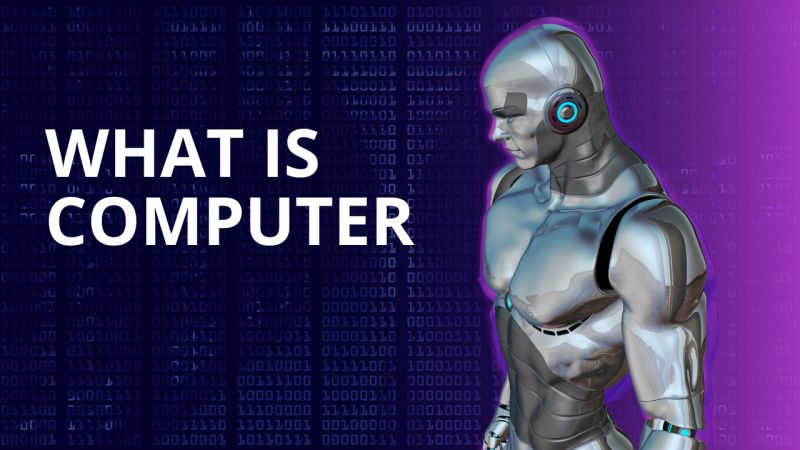
In today's technology-driven world, computers have become ubiquitous, permeating nearly every aspect of our lives. From smart phones in our pockets to supercomputers powering scientific research, computers have revolutionized communication, entertainment, education, and countless other fields. Understanding the fundamental concepts of computers and their capabilities is essential for navigating the modern world. This comprehensive guide delves into the intricacies of computing, providing a clear and concise explanation of the core principles, components, and applications of computers.
Defining Computers: Understanding the Core Concept
At its core, a computer is an electronic device that can process, store, and retrieve data. It takes raw data, performs operations on it, and generates output in a meaningful form. Data can be anything from numbers and symbols to text, images, and even sound. Computers are capable of performing a wide range of tasks, from simple calculations to complex data analysis, all thanks to their ability to follow instructions and manipulate data.
The Anatomy of a Computer: Essential Components and Their Roles
The functionality of a computer hinges on the interplay of several essential components, each playing a crucial role in the data processing cycle. These components can be broadly categorized into input devices, processing units, storage devices, and output devices.
Input Devices: Capturing Data from the Real World
Input devices serve as the bridge between the physical world and the computer's digital realm. They capture information from the user or the environment and convert it into a format that the computer can understand. Common input devices include keyboards, mice, touch screens, scanners, and cameras.
Processing Units: The Brain of the Computer
The processing unit, often referred to as the Central Processing Unit (CPU), is the heart of the computer. It is responsible for executing instructions, performing calculations, and manipulating data. The CPU's speed and efficiency determine the overall performance of the computer.
Storage Devices: Preserving Data for Future Use
Storage devices are the repository of data, holding information even when the computer is turned off. They come in various forms, including hard disk drives (HDDs), solid-state drives (SSDs), and cloud storage. Storage capacity and access speed are key factors in choosing the appropriate storage solution.
Output Devices: Presenting Results to the User
Output devices convey the results of the computer's processing to the user. They transform digital data into a form that can be perceived by the human senses. Common output devices include monitors, printers, speakers, and projectors.
The Digital World at Your Fingertips: Exploring Computer Applications
Computers have revolutionized nearly every aspect of modern life, and their applications are as diverse as their capabilities. Here's a glimpse into some of the key areas where computers have made an impact:
Communication: Connecting the World
Computers have transformed communication, enabling instant messaging, email, video conferencing, and social media platforms. They have shrunk distances and connected people across the globe, fostering collaboration and understanding.
Education: Enhancing Learning and Knowledge
Computers have revolutionized education, providing access to vast amounts of information and interactive learning tools. Online courses, virtual classrooms, and educational software have made learning more accessible and engaging for students of all ages.
Entertainment: Unleashing Creativity and Enjoyment
Computers have become a cornerstone of entertainment, offering a wide range of options from gaming and streaming services to music production and digital art. They provide immersive experiences and endless possibilities for recreation.
Research and Innovation: Fueling Discovery and Progress
Computers are indispensable tools in scientific research, enabling complex simulations, data analysis, and modeling. They have accelerated the pace of discovery in fields such as medicine, engineering, and astronomy, driving innovation and progress.
The Future of Computing: Embracing New Horizons
The world of computing is constantly evolving, with new technologies emerging at an astounding pace. Artificial intelligence, machine learning, and quantum computing are just a few examples of the exciting advancements shaping the future of computing. These technologies hold the potential to revolutionize industries, solve complex problems, and redefine our relationship with technology.
Conclusion: Embracing the Digital Age
Computers have become an integral part of our lives, transforming the way we work, learn, communicate, and entertain ourselves. Understanding the principles of computing and its vast array of applications is essential for navigating the digital age with confidence and competence. As technology continues to evolve, it is crucial to embrace the opportunities it presents while remaining mindful of its potential impact on society.